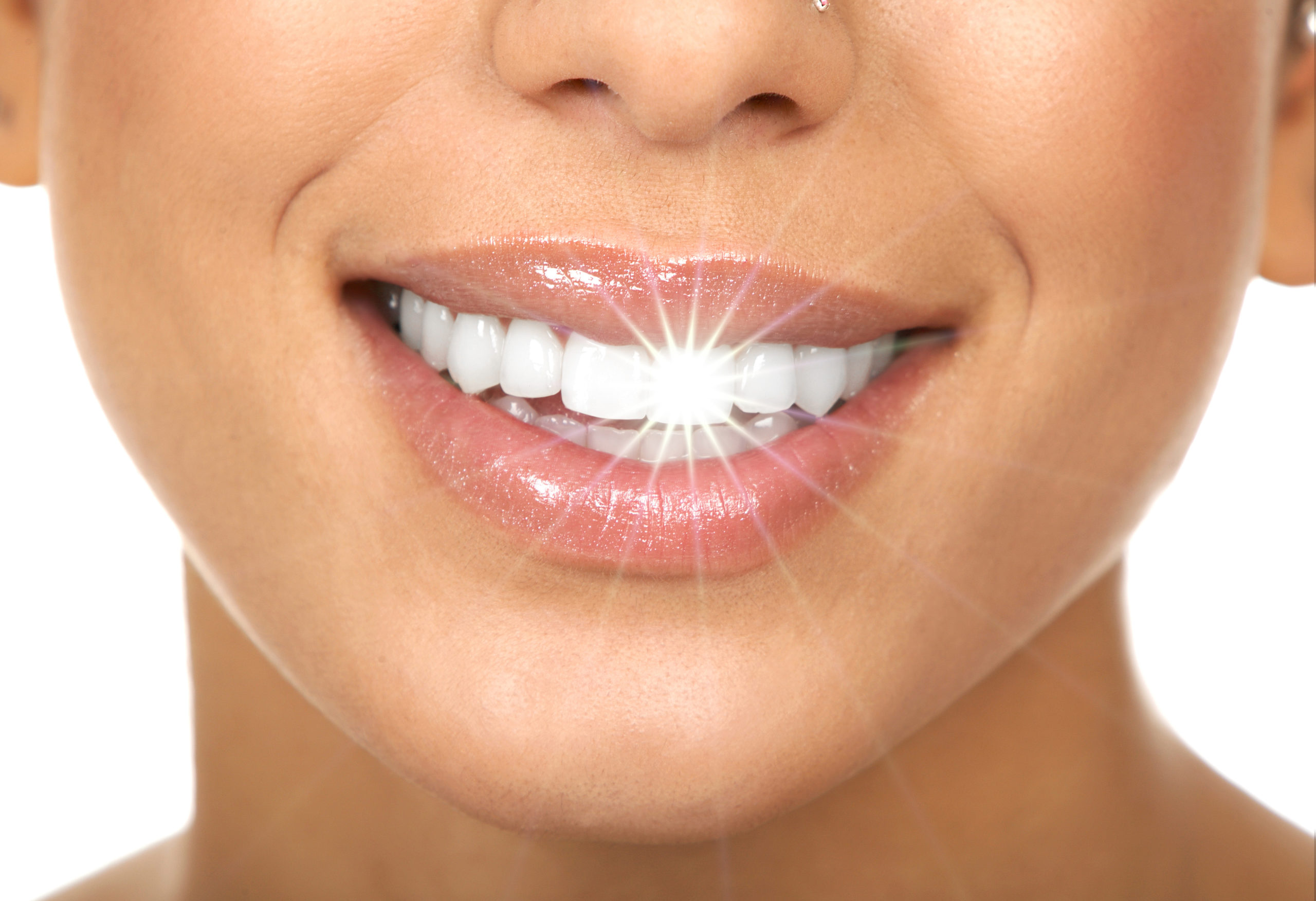
Table of Contents
Key Takeaway:
- Dental health is closely linked to overall health, with poor dental hygiene leading to various health issues
- Good oral hygiene includes brushing, flossing, and using mouthwash
- Neglected dental health can impact quality of life, including eating, speaking, and socializing comfortably
- A solid dental hygiene routine involves proper brushing, flossing, and using mouthwash
- Regular dental check-ups, cleanings, and fluoride use are crucial for preventive dental care
- A balanced diet and nutrition play a significant role in dental health
- Dental health needs change with age, requiring specific attention and care
- Tips for childhood dental care include starting oral hygiene early and limiting sugary snacks
- Teens should maintain good oral hygiene, avoid tobacco use, consider orthodontic treatment, and have regular dental check-ups
- Seniors should continue good oral hygiene, stay hydrated, review medications with the dentist, and have regular dental check-ups
1. Understanding the Importance of Dental Health
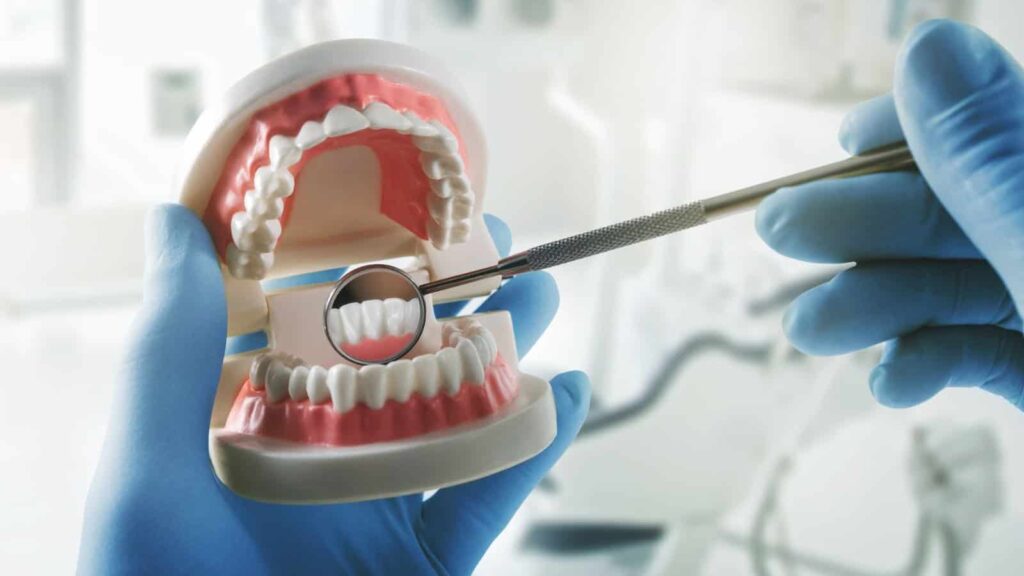
Source: kremerdental.com
When it comes to our overall well-being, we often forget to give dental health the attention it deserves. However, research has shown that there is a strong link between dental health and our overall health. Poor dental hygiene can lead to a range of health issues, including heart disease, diabetes, and respiratory infections.
The Link Between Dental Health and Overall Well-being
Several studies have found a connection between oral health and various systemic diseases. For example, gum disease has been linked to an increased risk of heart disease. The bacteria that cause gum disease can enter the bloodstream and contribute to the development of cardiovascular problems. Additionally, untreated oral infections can weaken the immune system, making it easier for infections to spread throughout the body.
Furthermore, maintaining good oral health can have a positive impact on our mental well-being. Having a healthy smile boosts confidence and self-esteem, allowing us to engage with others more comfortably and freely.
The Role of Oral Hygiene in Preventing Dental Issues
Practicing good oral hygiene is the foundation to secure dental issues. This includes brushing your teeth at least twice a day and flossing daily. Brushing helps remove plaque, a sticky film of bacteria that can build up on our teeth and lead to tooth decay and gum disease. Flossing helps remove plaque and food particles from between the teeth and along the gum line, reducing the risk of cavities and gum inflammation.
In addition to brushing and flossing, it is also recommended to use mouthwash as part of your oral care regimen. Mouthwash can reach areas that brushing and flossing may miss, helping to kill bacteria and freshen breath.
The Impact of Neglected Dental Health on Quality of Life
Neglected dental health can have a significant impact on our quality of life. Toothaches, gum pain, and bad breath can affect our ability to eat, speak, and socialize comfortably. Dental problems can also lead to sleep disturbances, as toothaches and gum pain may worsen when lying down.
In addition to the physical discomfort, poor dental health can also take a toll on our mental and emotional well-being. Embarrassment from having damaged or missing teeth can lead to self-consciousness and social anxiety. It can also affect our professional lives, as studies have shown that people with a healthy smile tend to be perceived as friendlier, more confident, and more successful.
2. Building a Solid Dental Hygiene Routine
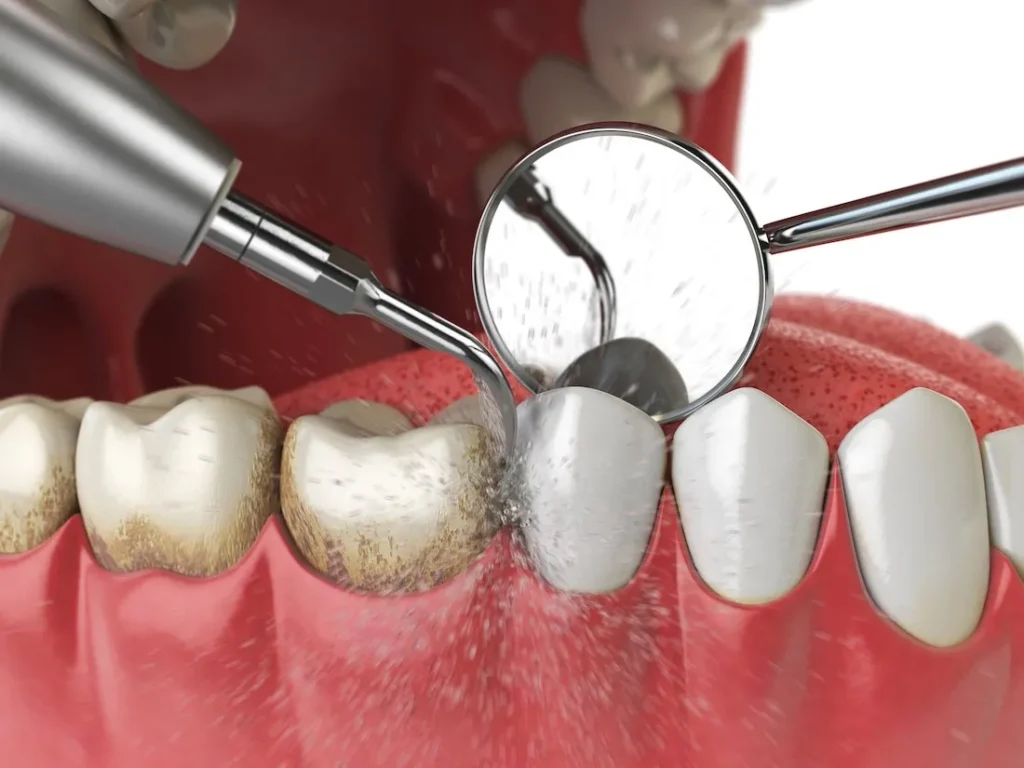
Source: sacramentofamilydentist.com
Building a solid dental hygiene routine is essential for maintaining optimal oral health. By following a few key practices, you can ensure that your teeth and gums stay healthy for years to come.
The Basics of Brushing and Flossing
Brushing your teeth correctly is crucial for effective plaque removal. Use a soft-bristled toothbrush and fluoridated toothpaste. Hold the brush at a 45-degree angle to your gums and make short, gentle back-and-forth strokes. Be sure to brush all surfaces of your teeth, including the outer, inner, and chewing surfaces. Don’t forget to brush your tongue to remove bacteria and freshen your breath.
Flossing is equally important, as it removes plaque and food debris from areas your toothbrush cannot reach. Take about 18 inches of floss and wrap it around your middle fingers, leaving a section of about 1-2 inches to work with. Gently slide the floss between your teeth using a back-and-forth motion. Curve the floss around each tooth, making sure to go beneath the gumline. Be careful not to snap the floss, as it can injure your gums.
The Benefits of Using Mouthwash in Your Oral Care Regimen
Incorporating mouthwash into your oral care routine can provide additional benefits. Mouthwash contains antimicrobial ingredients that can help kill bacteria and freshen your breath. It can also reach areas that brushing and flossing may miss, such as the back of the throat and the roof of the mouth. Using mouthwash after brushing and flossing can provide an extra layer of protection against dental issues.
Tips for Choosing the Right Toothpaste and Toothbrush
Choosing the right toothpaste and toothbrush can make a difference in your oral health. Look for toothpaste that contains fluoride, as this mineral helps strengthen tooth enamel and prevent tooth decay. There are also specialized toothpaste available for specific dental needs, such as sensitivity or whitening.
When selecting a toothbrush, opt for a soft-bristled brush that is comfortable to hold and has a small head that can easily reach all areas of your mouth. Electric toothbrushes can also be a great option, as they can provide more consistent and effective brushing.
3. Preventive Dental Care: Key to Avoiding Dental Problems
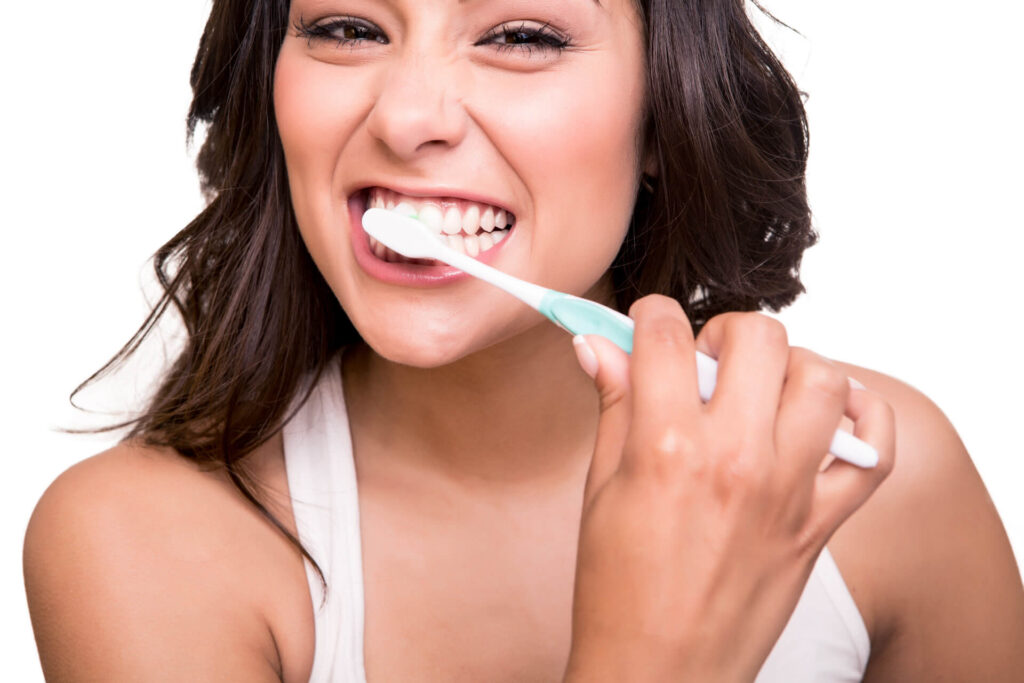
Source: medford.dentist
Preventive dental care plays a crucial role in avoiding dental problems and maintaining optimal oral health. Regular dental check-ups and cleanings, along with a few other practices, can help keep your teeth and gums in top shape.
The Importance of Regular Dental Check-ups and Cleanings
Regular visits to your dentist are essential for maintaining good oral health. During these check-ups, your dentist will examine your teeth and gums, looking for any signs of decay, gum disease, or other dental issues. They may also perform a professional cleaning to remove plaque and tartar buildup that cannot be removed through regular brushing and flossing.
Early detection of dental issues is key to preventing them from becoming more serious and costly to treat. Regular check-ups allow your dentist to identify potential problems and address them before they escalate.
The Role of Fluoride in Preventing Tooth Decay
Fluoride is a mineral that can effectively prevent tooth decay. It strengthens tooth enamel and makes it more resistant to acid attacks from plaque bacteria and sugars in the mouth. Fluoride can be obtained through fluoridated drinking water, fluoride toothpaste, mouth rinses, and professional fluoride treatments at the dentist’s office.
It is important to note that excessive fluoride can lead to dental fluorosis, a condition that causes white spots or streaks on the teeth. Therefore, it is essential to follow the recommended guidelines for fluoride use and consult with your dentist if you have any concerns.
Diet and Nutrition Tips for Healthy Teeth
While oral hygiene practices are crucial, what we eat also plays a significant role in our dental health. A balanced diet that includes essential nutrients can help prevent tooth decay and promote healthy gums.
Avoiding excessive consumption of sugary and acidic foods and drinks is essential. These can erode tooth enamel and increase the risk of cavities. Instead, opt for a diet rich in fruits, vegetables, whole grains, and lean proteins. These foods provide essential vitamins and minerals that support strong teeth and gums.
4. Maintaining Dental Health for All Ages
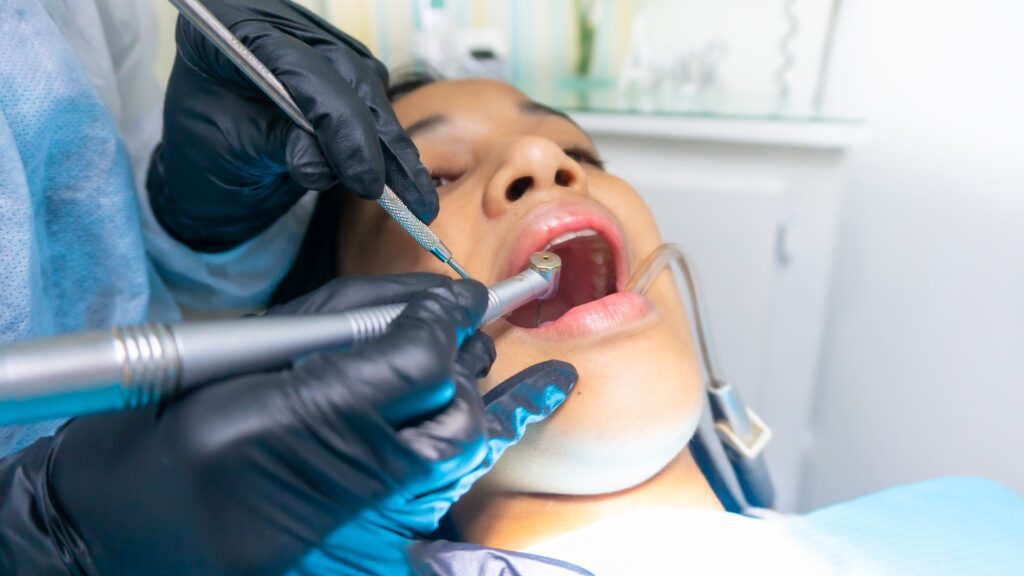
Source: galleriadentalalexandria.com
Dental health needs change as we age. From childhood to adolescence to the senior years, each stage of life requires specific attention and care to maintain a healthy smile.
Childhood Dental Care: Tips for Parents
Early dental care is crucial for setting the foundation for a lifetime of good oral health. Here are some tips for parents to ensure their child’s dental health:
- Start cleaning your baby’s gums with a soft cloth or gauze before their teeth come in.
- Introduce a toothbrush and fluoride toothpaste as soon as your child’s first tooth appears.
- Encourage regular brushing and flossing habits and supervise until they can do it effectively on their own.
- Limit sugary snacks and drinks, especially before bedtime.
- Schedule regular dental check-ups to monitor your child’s oral health and receive guidance on proper dental care.
The Unique Dental Health Needs of Teens
The teenage years are a critical time for dental health. Hormonal changes and increased independence can impact oral hygiene habits. Here are some tips specifically for teenagers:
- Continue practicing good oral hygiene habits, including brushing twice a day and flossing daily.
- Avoid tobacco use, as it can lead to gum disease and tooth discoloration.
- Consider orthodontic treatment if necessary, as straight teeth are easier to clean and maintain.
- Maintain a healthy diet and limit the consumption of sugary snacks and drinks.
- Regularly visit the dentist for check-ups, cleanings, and any necessary dental treatments.
Dental Health Tips for Seniors
As we age, our oral health needs change. Here are some dental health tips for seniors:
- Continue practicing good oral hygiene habits, including brushing twice a day and flossing daily.
- Consider using an electric toothbrush or other adaptive devices if necessary.
- Stay hydrated to prevent dry mouth, which can increase the risk of tooth decay and gum disease.
- Review your medications with your dentist, as some medications can have side effects that impact oral health.
- Visit the dentist regularly for check-ups, cleanings, and any necessary dental treatments.
By following these age-specific dental care tips, you can ensure that your oral health remains in excellent condition throughout your life.
Frequently Asked Questions (FAQ):
Why is dental health important?
Dental health is important because it is closely linked to overall health. Poor dental hygiene can lead to various health issues such as heart disease, diabetes, and respiratory infections. It also affects our mental well-being and quality of life.
What is the role of oral hygiene in preventing dental issues?
Practicing good oral hygiene, including brushing your teeth at least twice a day and flossing daily, helps remove plaque and prevent tooth decay and gum disease. Using mouthwash can also provide additional protection against dental issues.
How does neglected dental health impact our quality of life?
Neglected dental health can cause toothaches, gum pain, and bad breath, which can affect our ability to eat, speak, and socialize comfortably. It can also lead to sleep disturbances and have a negative impact on our mental and emotional well-being.
What are the basics of brushing and flossing?
Brushing your teeth correctly involves using a soft-bristled toothbrush and fluoridated toothpaste, brushing all surfaces of your teeth, and also cleaning your tongue. Flossing is equally important and should be done using a back-and-forth motion, curving the floss around each tooth.
What are the benefits of using mouthwash?

Source: smilebar.com
Mouthwash can help kill bacteria, freshen breath, and reach areas that brushing and flossing may miss, providing an extra layer of protection against dental issues.
Why is regular dental check-ups and cleanings important?
Regular dental check-ups allow for early detection of dental issues and can prevent them from becoming more serious and costly to treat. Professional cleanings can also remove plaque and tartar buildup that regular brushing and flossing may miss.
What is the role of fluoride in preventing tooth decay?
Fluoride strengthens tooth enamel and makes it more resistant to acid attacks, preventing tooth decay. It can be obtained through fluoridated drinking water, fluoride toothpaste, mouth rinses, and professional fluoride treatments at the dentist’s office.
How can diet and nutrition affect dental health?
A balanced diet rich in essential nutrients supports strong teeth and gums. Avoiding excessive consumption of sugary and acidic foods and drinks is crucial, as they can erode tooth enamel and increase the risk of cavities.







